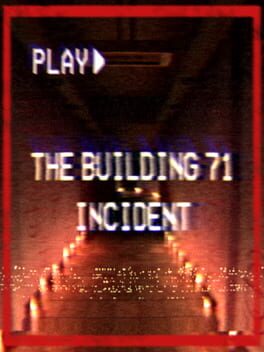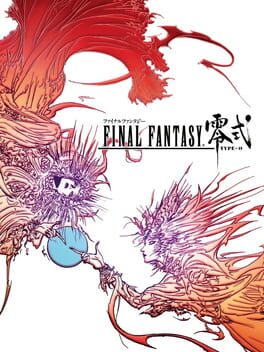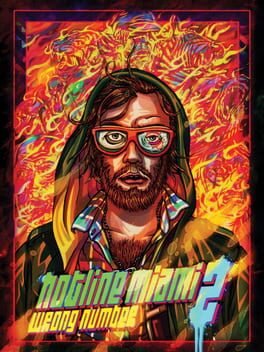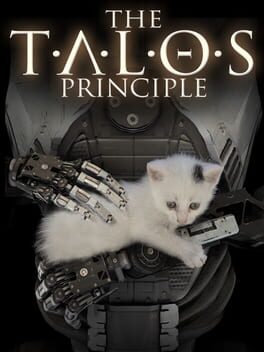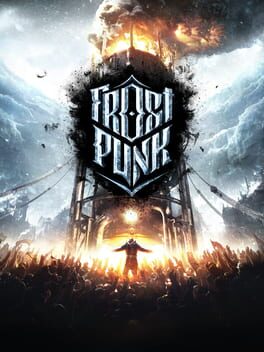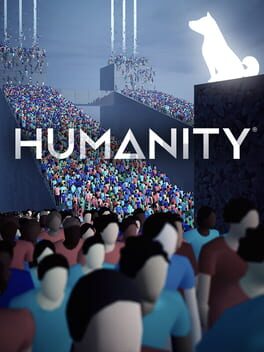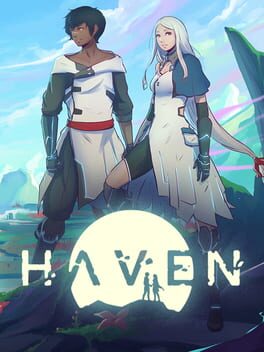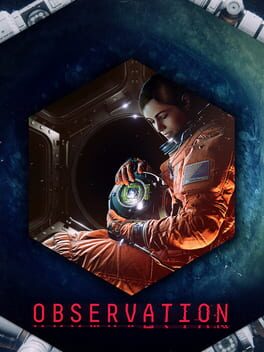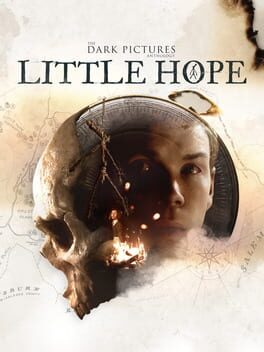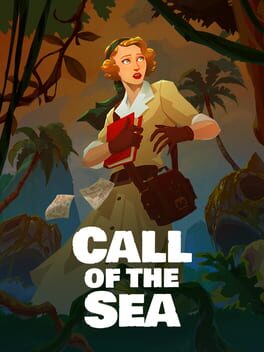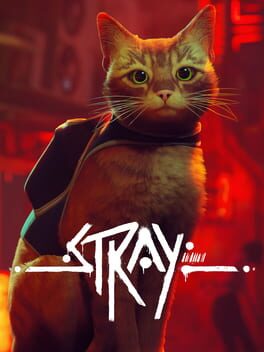Gameovah
2023
5.5/10
One of the fiew "screenlife games" I ever played (and ever existed?). You find and old computer and start exploring its files, folders, archived chat... you basically star investigating what the previous owner was up to. Of course this become more and more fascinating as you proceed: the computer, the chats, the online friends, all keeps addressing "you", but you're not that you. You're basically investigating an implied subjectivity, overlapped to yours as you play.
There are brilliant All About Lily Chou Chou vibes here and there. The game just loses part of its charm as it proceeds and becomes nothing but a standard puzzle game.
One of the fiew "screenlife games" I ever played (and ever existed?). You find and old computer and start exploring its files, folders, archived chat... you basically star investigating what the previous owner was up to. Of course this become more and more fascinating as you proceed: the computer, the chats, the online friends, all keeps addressing "you", but you're not that you. You're basically investigating an implied subjectivity, overlapped to yours as you play.
There are brilliant All About Lily Chou Chou vibes here and there. The game just loses part of its charm as it proceeds and becomes nothing but a standard puzzle game.
6.5/10
The game is a valuable compendium of virtual nostalgia and retro fetishization. It's also procedurally akin to comfort and zen games: exploration, grinding, minigames, and subquests make the past feel so chilling and familiar that even the seemingly uninspired open world design turns out to be functional and effective.
Since it expands what in the original FFVII was the second act of the plot, it also has a kind of episodic, wandering, and erratic narrative structure that makes the overall experience even funnier and more undemanding. The past is nothing but a theme park here - an extremely moving, funny, and spectacular one.
If as a remake this is almost perfect, as a "rebirth" (or however you want to call this trend of meta-textual self-reflexive remakes/reboots) it has its flaws, especially compared to FFVII Remake (which was so intriguing and subversive). Here the plot is extremely diluted, so the most part of the subversion of the original narrative is left to the ending. But the ending isn't quite good as you'd expect. It's esquisitely chaotic and messy as it should be, and it's Nomura's converging worlds and identities as their finest but at the same time it seems to withdraw from the subversion that the Remake seemingly aimed for. As far as I can see, the game turns out to be nothing but an interlude between the enthralling beginning of a subversion of the past (the Remake) and whatever will be the outcome of it (the third and final episode of this trilogy, I guess). I don't blame the chaos of the final chapter, rather its harmlessness. It's almost a renunciation of the premises of the Remake.
Anyway, one of the best Final Fantasy ever made.
Favourite character: Yuffie.
Favourite crush: Aerith.
Least favourite character: Tifa.
The game is a valuable compendium of virtual nostalgia and retro fetishization. It's also procedurally akin to comfort and zen games: exploration, grinding, minigames, and subquests make the past feel so chilling and familiar that even the seemingly uninspired open world design turns out to be functional and effective.
Since it expands what in the original FFVII was the second act of the plot, it also has a kind of episodic, wandering, and erratic narrative structure that makes the overall experience even funnier and more undemanding. The past is nothing but a theme park here - an extremely moving, funny, and spectacular one.
If as a remake this is almost perfect, as a "rebirth" (or however you want to call this trend of meta-textual self-reflexive remakes/reboots) it has its flaws, especially compared to FFVII Remake (which was so intriguing and subversive). Here the plot is extremely diluted, so the most part of the subversion of the original narrative is left to the ending. But the ending isn't quite good as you'd expect. It's esquisitely chaotic and messy as it should be, and it's Nomura's converging worlds and identities as their finest but at the same time it seems to withdraw from the subversion that the Remake seemingly aimed for. As far as I can see, the game turns out to be nothing but an interlude between the enthralling beginning of a subversion of the past (the Remake) and whatever will be the outcome of it (the third and final episode of this trilogy, I guess). I don't blame the chaos of the final chapter, rather its harmlessness. It's almost a renunciation of the premises of the Remake.
Anyway, one of the best Final Fantasy ever made.
Favourite character: Yuffie.
Favourite crush: Aerith.
Least favourite character: Tifa.
2011
6/10
Many things that people praised about Final Fantasy XVI were in this episode already: it all revolves around war, it's violent and bloody, it features a heavily political worldbuilding with a lot of strategy, battles, betrayals, deals, and stuff like that. Just like FFXVI, it's very linear and split in two parts: the first is sociopolitical, the second "theological". In FFXVI, each part lasts for half of the game (more or less). Here the structure is less balanced, with the second part that lasts for just one chapter. For the most part the game is just about war. Towards the end, it becomes all gods, chosen ones, apocalypse, stuff like that... just like FFXVI.
The game wants to criticize war, as usual, but (as usual!) it's quite ambiguous in depicting war as a necessary evil to reach peace/freedom (...as FFXVI). The gameplay is quite repetitive and revolves around subsequent playthroughs, which means ignoring the suffering and sacrifice of the main characters as well as the overall meaning of the plot as a whole: it all revolves around how bad war is, and instead we re-enact it just for fun, over and over again.
The cast of characters is quite poor and underdeveloped, most of them are stereotypes or moe characters with no more than 3-4 lines of dialogue from beginning to end.
And yet, narrative-wise the game is unbalanced but not bad at all. The ending is one of the most moving of the entire series, the introduction is quite strong, some battles and world dynamics are very interesting and quite original.
So, better than FFXVI I guess.
Many things that people praised about Final Fantasy XVI were in this episode already: it all revolves around war, it's violent and bloody, it features a heavily political worldbuilding with a lot of strategy, battles, betrayals, deals, and stuff like that. Just like FFXVI, it's very linear and split in two parts: the first is sociopolitical, the second "theological". In FFXVI, each part lasts for half of the game (more or less). Here the structure is less balanced, with the second part that lasts for just one chapter. For the most part the game is just about war. Towards the end, it becomes all gods, chosen ones, apocalypse, stuff like that... just like FFXVI.
The game wants to criticize war, as usual, but (as usual!) it's quite ambiguous in depicting war as a necessary evil to reach peace/freedom (...as FFXVI). The gameplay is quite repetitive and revolves around subsequent playthroughs, which means ignoring the suffering and sacrifice of the main characters as well as the overall meaning of the plot as a whole: it all revolves around how bad war is, and instead we re-enact it just for fun, over and over again.
The cast of characters is quite poor and underdeveloped, most of them are stereotypes or moe characters with no more than 3-4 lines of dialogue from beginning to end.
And yet, narrative-wise the game is unbalanced but not bad at all. The ending is one of the most moving of the entire series, the introduction is quite strong, some battles and world dynamics are very interesting and quite original.
So, better than FFXVI I guess.
5/10
Just like the previous one, it's a hyper-hallucinated playable version of a movie by Refn.
You play as many characters and the plot is fragmented and unreliable, which is good but perhaps too heavy and uselessly convoluted, where instead the first one was much more straightforward and clear (at least in its rhetorical intents).
Just like the previous one, it's a hyper-hallucinated playable version of a movie by Refn.
You play as many characters and the plot is fragmented and unreliable, which is good but perhaps too heavy and uselessly convoluted, where instead the first one was much more straightforward and clear (at least in its rhetorical intents).
2014
2018
6/10
The lore and worldbuilding are simple but fascinating. The survival/strategy mechanics are brilliantly cruel, even more than in This War of Mine.
And yet, I still think that the genre does't quite fit its theme and rhetorical aims: it still provides a performance you can improve too much, in too many ways, with increasing mastery. And mastery, here as in This War, is destructive and goes against any narrative or rhetoric purpose.
The lore and worldbuilding are simple but fascinating. The survival/strategy mechanics are brilliantly cruel, even more than in This War of Mine.
And yet, I still think that the genre does't quite fit its theme and rhetorical aims: it still provides a performance you can improve too much, in too many ways, with increasing mastery. And mastery, here as in This War, is destructive and goes against any narrative or rhetoric purpose.
2023
2020
5/10
It is... fine, I guess? It's so rare for a game to depict love, and especially love life and routine, that finding a sci-fi survival game with heavy romance vibes and tons of romantic dialogues and love life depictions cannot but be fine.
At the same time, there's almost no way to interact with what's depicted. Except for dialogues, in which you control alternatively both the characters, everything soon turns out to be average, or rather quite basic, exploration/gathering-resources/defeating-anemies.
The game is good at depicting couple life and at avoiding gender stereotypes but that's basically it. It's even quite disappointing, from a narrative perspective, when it deals with more epic/decisive moments, e.g., the wrangle between the two and the ending.
It is... fine, I guess? It's so rare for a game to depict love, and especially love life and routine, that finding a sci-fi survival game with heavy romance vibes and tons of romantic dialogues and love life depictions cannot but be fine.
At the same time, there's almost no way to interact with what's depicted. Except for dialogues, in which you control alternatively both the characters, everything soon turns out to be average, or rather quite basic, exploration/gathering-resources/defeating-anemies.
The game is good at depicting couple life and at avoiding gender stereotypes but that's basically it. It's even quite disappointing, from a narrative perspective, when it deals with more epic/decisive moments, e.g., the wrangle between the two and the ending.
2019
6/10
Just like the previous Stories Untold, this features a lot of good and interesting design ideas, bud ends up being repetitive and harsh (gameplaywise) and quite confusing (narrativewise).
Playing the role of Hal-9000 is fascinating but many things could be improved (e.g., story advancements: were cutscenes really necessary?). Although apparently original, most mechanics turn out to be nothing but basic puzzles. The game could also follow the "surveillance technology" route but chooses not to - observing things, the main mechanic, therefore lacks both narrative and ludic depth.
...and the ending just doesn't work :[
Just like the previous Stories Untold, this features a lot of good and interesting design ideas, bud ends up being repetitive and harsh (gameplaywise) and quite confusing (narrativewise).
Playing the role of Hal-9000 is fascinating but many things could be improved (e.g., story advancements: were cutscenes really necessary?). Although apparently original, most mechanics turn out to be nothing but basic puzzles. The game could also follow the "surveillance technology" route but chooses not to - observing things, the main mechanic, therefore lacks both narrative and ludic depth.
...and the ending just doesn't work :[
2020
7/10
Puzzles may be somehow repetitive in their structure (explore, find notes and letters, activate the mechanism) and narratively dissonant, but what a great plot.
What a great reinterpretation of clsssic adventure novels and imageries, how original as a take on Lovecraftian mithologies, what a brilliant reflection on womanhood and monstrosity, on masculinity and discovery. How effective as a subversion of its references. And what a great love story, with a moving and thought-provoking ending.
Puzzles may be somehow repetitive in their structure (explore, find notes and letters, activate the mechanism) and narratively dissonant, but what a great plot.
What a great reinterpretation of clsssic adventure novels and imageries, how original as a take on Lovecraftian mithologies, what a brilliant reflection on womanhood and monstrosity, on masculinity and discovery. How effective as a subversion of its references. And what a great love story, with a moving and thought-provoking ending.
2022
6/10
The mechanics are not that great, I mean, just basic environmental puzzles, some small stealth sections, and exploration. Playing as a cat in a dystopian world is a great idea but nothing more: the cat is kinda stiff and the fact you can jump only where allowed (and indicated) just feels bad - I'd assume that being a cat would feel freely and dynamic and instead this cat is even more stiff than most playable humans out there.
The sci-fi dystopian worldbuilding, although not that original, is quite good and well crafted. The plot is average but its take on posthumanist fiction is funny and even moving at times.
The best aspect of the game by far is its setting, a more-walled version of Kowloon inhabited by weird creatures and robots. The structure of the city, its purpose, its technologies make it an urban embodiment of the political subtext of the game. Which may be nothing but the nth cliche, ok, but it works.
The mechanics are not that great, I mean, just basic environmental puzzles, some small stealth sections, and exploration. Playing as a cat in a dystopian world is a great idea but nothing more: the cat is kinda stiff and the fact you can jump only where allowed (and indicated) just feels bad - I'd assume that being a cat would feel freely and dynamic and instead this cat is even more stiff than most playable humans out there.
The sci-fi dystopian worldbuilding, although not that original, is quite good and well crafted. The plot is average but its take on posthumanist fiction is funny and even moving at times.
The best aspect of the game by far is its setting, a more-walled version of Kowloon inhabited by weird creatures and robots. The structure of the city, its purpose, its technologies make it an urban embodiment of the political subtext of the game. Which may be nothing but the nth cliche, ok, but it works.
This review contains spoilers
6/10
Ok, this was quite disappointing compared to its sequel (Automata).
The design philosophy is still recognisable: you must do the same boring stuff over and over, and eventually get to enjoy the meaning behind boring and repetitive stuff. In Automata, some fetch quests are explicitly self-reflexive: it's not what you do but how you experience it, you're told. In Replicant it's basically the same. But the way to get to the endings is way too punishingly boring and long. In Automata, things change a lot quite fast and you realize that the end isn't just the end quite soon. This makes the plot way more enjoyable and meaningful. Here ng and ng+ are identical. And ng++ is just striving to find all the stuff you missed beforehand. You just get a bunch of new dialogues (ng+) and a new final boss + true ending (ng++). Actually, the best ending is the ver. 1.22etc exclusive, i.e., ending E. But it's way too dramatically boring to achieve. You must replay the same 7 hours over and over, endlessly, with almost nothing new each time. This made the game almost unplayable for me: too much determination requested, and with too few (narrative, aesthetic, ludic) "rewards" along the way. It's just uselessly repetitive, there's no reason to delay the true ending that much (the ng structure in Automata makes a lot more sense. Here it makes any). In Automata, repetion is part of the very existential/theological meaning of the game. Here there's no point in repeating things.
The mix of genres is even more vibrant than in the sequel. Hack'n'slash is still its core but you also have shoot'em'up, isometric action rpg, side-scrolling adventure game, even text adventure and survival horror (!!). But: this is just not enough to make the game feel less repetitive. After the first run, it's all just smashing the same button to kill hundreds of enemies.
The plot is quite original after all, and imbued with existential themes. But it also seems rushed and fragmented. Ng and ng+ seem truncated and barely make sense. Ng++ revolves around a great design idea (you'll find something waaaaay better in Automata) but feels entirely out of place from a narrative perspective. The choice you make just doesn't make sense, considering the premises: one of the options, the most interesting one, is entirely unmotivated.
Replicant seems nothing but a draft for Automata. In case you enjoyed Automata, you'll find something interesting here as well. But it's way less powerful, refined, intelligent, and touching. As a draft cannot but be.
Ok, this was quite disappointing compared to its sequel (Automata).
The design philosophy is still recognisable: you must do the same boring stuff over and over, and eventually get to enjoy the meaning behind boring and repetitive stuff. In Automata, some fetch quests are explicitly self-reflexive: it's not what you do but how you experience it, you're told. In Replicant it's basically the same. But the way to get to the endings is way too punishingly boring and long. In Automata, things change a lot quite fast and you realize that the end isn't just the end quite soon. This makes the plot way more enjoyable and meaningful. Here ng and ng+ are identical. And ng++ is just striving to find all the stuff you missed beforehand. You just get a bunch of new dialogues (ng+) and a new final boss + true ending (ng++). Actually, the best ending is the ver. 1.22etc exclusive, i.e., ending E. But it's way too dramatically boring to achieve. You must replay the same 7 hours over and over, endlessly, with almost nothing new each time. This made the game almost unplayable for me: too much determination requested, and with too few (narrative, aesthetic, ludic) "rewards" along the way. It's just uselessly repetitive, there's no reason to delay the true ending that much (the ng structure in Automata makes a lot more sense. Here it makes any). In Automata, repetion is part of the very existential/theological meaning of the game. Here there's no point in repeating things.
The mix of genres is even more vibrant than in the sequel. Hack'n'slash is still its core but you also have shoot'em'up, isometric action rpg, side-scrolling adventure game, even text adventure and survival horror (!!). But: this is just not enough to make the game feel less repetitive. After the first run, it's all just smashing the same button to kill hundreds of enemies.
The plot is quite original after all, and imbued with existential themes. But it also seems rushed and fragmented. Ng and ng+ seem truncated and barely make sense. Ng++ revolves around a great design idea (you'll find something waaaaay better in Automata) but feels entirely out of place from a narrative perspective. The choice you make just doesn't make sense, considering the premises: one of the options, the most interesting one, is entirely unmotivated.
Replicant seems nothing but a draft for Automata. In case you enjoyed Automata, you'll find something interesting here as well. But it's way less powerful, refined, intelligent, and touching. As a draft cannot but be.
